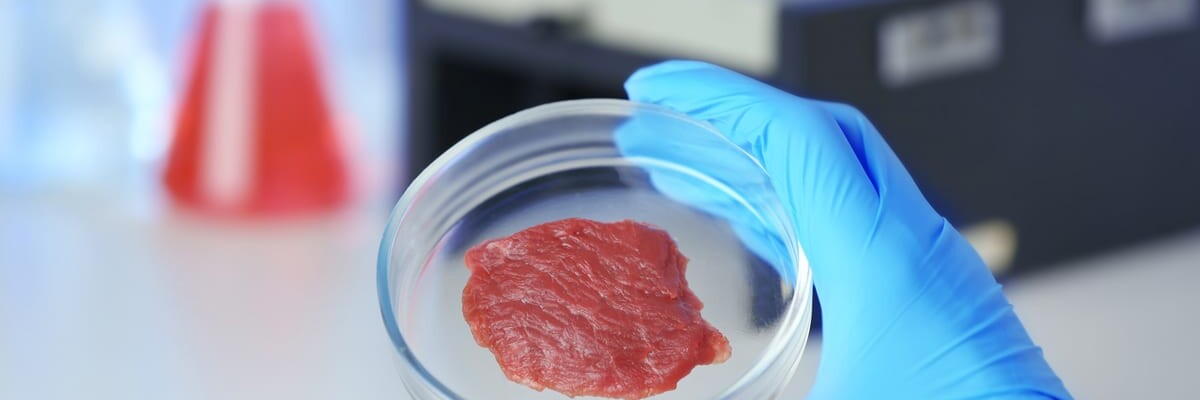In order to print a small fragment of muscle tissue, the experimenters placed cells in the artificial microgravity conditions.
The experiment the Israeli startup Aleph Farms ran on board the ISS shows that it is possible to grow animal food in a laboratory environment right in space. This will enable to deliver from Earth cell cultures and components necessary for their growth, but not ready-to-use foodstuffs. In future, the meat growing technology may be useful for the participants to the Martian missions.
Aleph Farms' competitors - Impossible Foods and Beyond Meat, for example, - focus mainly on producing artificial meat of vegetable origin. Aleph Farms uses animal cell cultures to grow full-fledged muscle tissue.
One advantage of this method is that it is a more humane way of obtaining meat. This technology can be quite acceptable for many people who do not eat animal food because they feel sorry for the animals. A limited amount of muscular tissue cells is enough to generate raw material, and there is no need to slaughter animals to obtain it
Growing meat in weightlessness can become one more competitive advantage for Aleph Farms. So far, artificial meat has been a rather expensive pleasure. But astronauts may be the first ones to switch to this kind of food, because spaceflights are very expensive in principle, and the cost of artificial meat is unlikely to have a significant impact on the expenses related to them. At the same time, producers will have the opportunity to improve performance and reduce production costs when they get actual customers.
Share this with your friends!





Be the first to comment
Please log in to comment